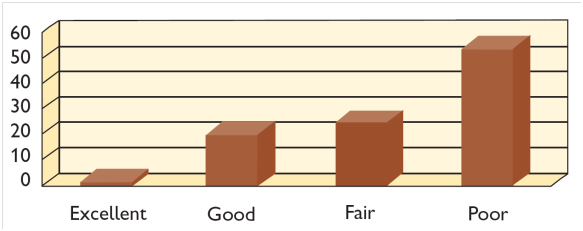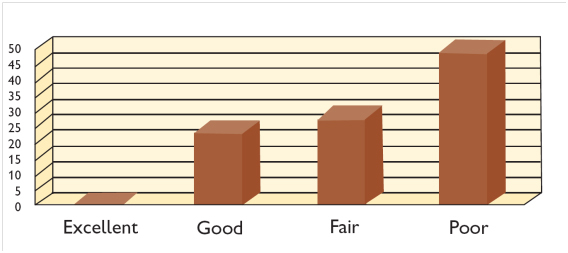In recent years DPP Barra McGrory QC has defended the Public Prosecution Service (PPS) against public criticism for its handling of a number of high profile cases.
Following the acquittal of prominent republican Colin Duffy for his alleged involvement in the Massereene attack, Mr McGrory wrote in the Irish News:
“Readers should draw confidence from the fact that we have a criminal justice system which convicts where there is proof beyond a reasonable doubt and acquits where that high standard is not satisfied.”
In April 2013 a Criminal Justice Inspection (CJI) review of PPS’ corporate governance procedures said the organisation had made significant progress since it was established in 2005.
However the report did raise a number of concerns.
It found that the PPS is staffed by a large number of young lawyers who support a small cadre of more experienced staff from the previous administration.
Inspectors found that the organisation’s management structure is now in need of “significant change, as indeed were the staff levels, information flows and performance regime.”
It said Mr McGrory faces a “significant challenge” to progress the organisation with “barriers arising from the culture within the PPS, the legacy of their operating environment and a need for more management expertise.”
While the PPS is involved in Performance Improvement Partnerships (PIPs) with the PSNI and Northern Ireland Court Service, the CJI report found that significant “barriers” remain.
The report raises concerns over the quality of case files which the PSNI forward to the PPS.
“Progress in improving file quality had been slow and one of the reasons was the differing views of the PPS and PSNI. In the case of the PPS they believe that files are not of sufficient quality to support a decision to prosecute, whereas PSNI personnel told inspectors that they felt some of the information requests from the PPS were nugatory and not essential to a prosecution.”
While the relationship between the PPS and PSNI is said to have improved in recent times, the report found that it had previously been “characterised by a period of less than helpful exchanges between the two agencies.”
“The obvious point is that neither agency can solve it on their own and the improved relationship between the PPS and the PSNI offers an opportunity to progress this matter.”
While the PPS had fully or partially achieved 20 of the 26 performance milestones it had set itself in its corporate business plan for 2011/12, CJI inspectors found that this hadn’t led to similar success in meeting more important specific delivery targets, with only seven out of 19 targets having been achieved.
As part of a review of the quality of PPS decision making process inspectors looked at 124 case files but found that in a quarter of these cases the correct charges had not been directed by prosecutors.
The report noted a tendency for prosecutors to adopt police charges, in many cases without any obvious analysis of whether or not they were the most appropriate.
“This often resulted in overcharging, with the PPS endorsing the PSNI selection of all potential offences, as opposed to reflecting the crux of the criminality.”
Inspectors highlighted the need for the PPS to improve how it records the reasoning for decisions taken in cases.
“In too many instances review decisions were often poorly recorded and did not set out the rationale or thought processes underpinning decisions to prosecute or selection of charges.”
The report found that a lack of written evidence of the decision making process in cases continued throughout all stages of proceedings with only 29.8% of reviews (excluding pre-charge) meeting the required standard.
Whilst there tended to be better quality reviews in the most serious cases, inspectors also uncovered examples where reviews in serious cases were non-existent or of poor quality.
CJI found that in three of nine rape cases it inspected the PPS review of the case was of insufficient quality.
The examination of PPS files found “significant and avoidable delay at every stage of the process”.
PPS internal targets to reduce delays were found to have had ‘limited success’.
“Case progression relied upon a number of agencies within the criminal justice system and progress to date had been slow.”
REPORT FINDS RECORDS OF DISCLOSURE TO DEFENCE POORAs part of the legal process the PPS is obliged to disclose evidence to the defence which it intends to use in any forthcoming trial.
However inspectors found that PPS records of continuing disclosure to defence teams were “not good” and it was often “very difficult” to identify what, if any items, had been disclosed because of a lack of necessary information on case files.
“More often than not, the only way of identifying any disclosure actions was through the chain of correspondence.
“Compliance with the completion of the disclosure record sheet (a requirement under the PPS disclosure policy) was very poor.”
Out of 86 case files inspected by CJI only four disclosure record sheets had been properly completed, with most being blank or absent from files.
Reiterating the need for proper procedures within the PPS, the report concluded:
“This is not a purely bureaucratic function; it provides a record of the prosecutor’s decision and the reason why it was taken.
“As with the recording of reviews it provides the prosecutor with an evidence based justification for decisions which may later be challenged.”
Responding to the CJI report, DPP Barra McGrory said: “I am confident that the PPS can rise to the challenges highlighted in this report and I look forward to leading the organisation through this next phase in its development.”
Mr McGrory said that the PPS had carried out a management review in a move to improve efficiency and introduced a new training programme for senior managers.
“A particular issue which the PPS is keen to address is that of performance management.
“A number of steps have already been taken including a major senior management review and the extension of the role of the deputy director to include taking the lead in performance management.”


